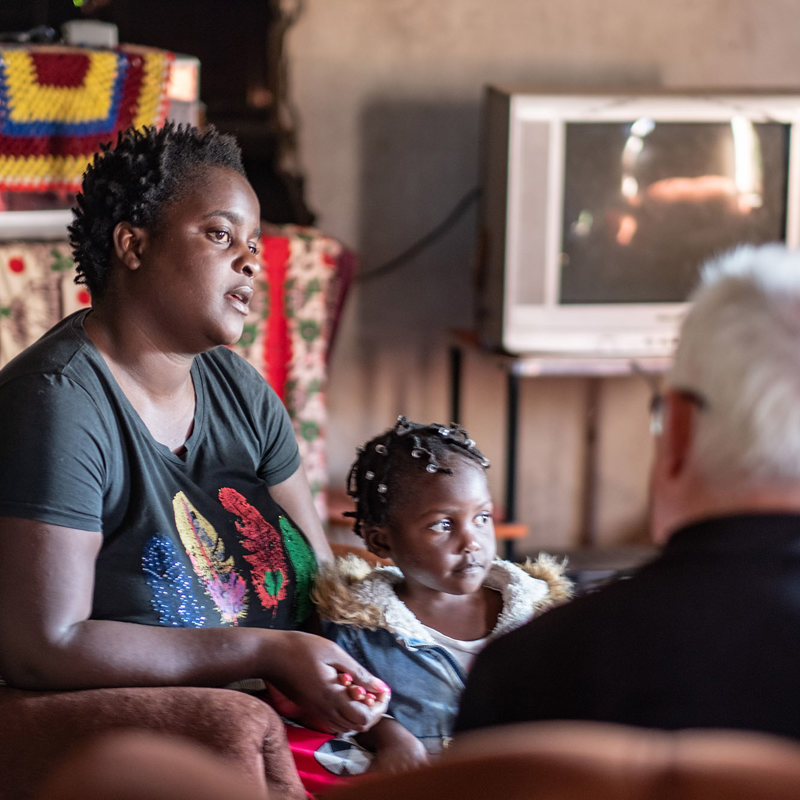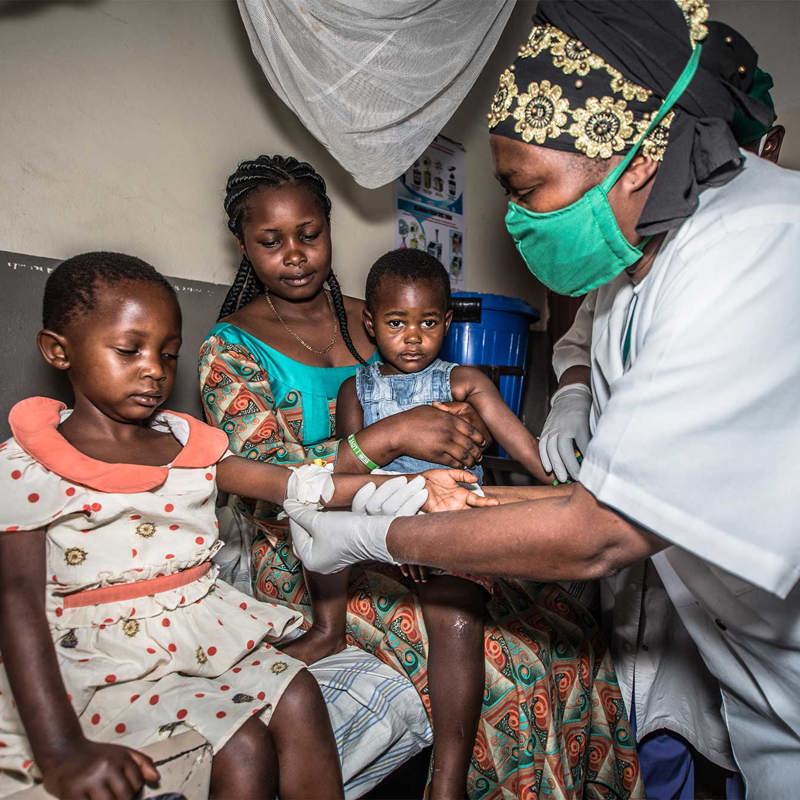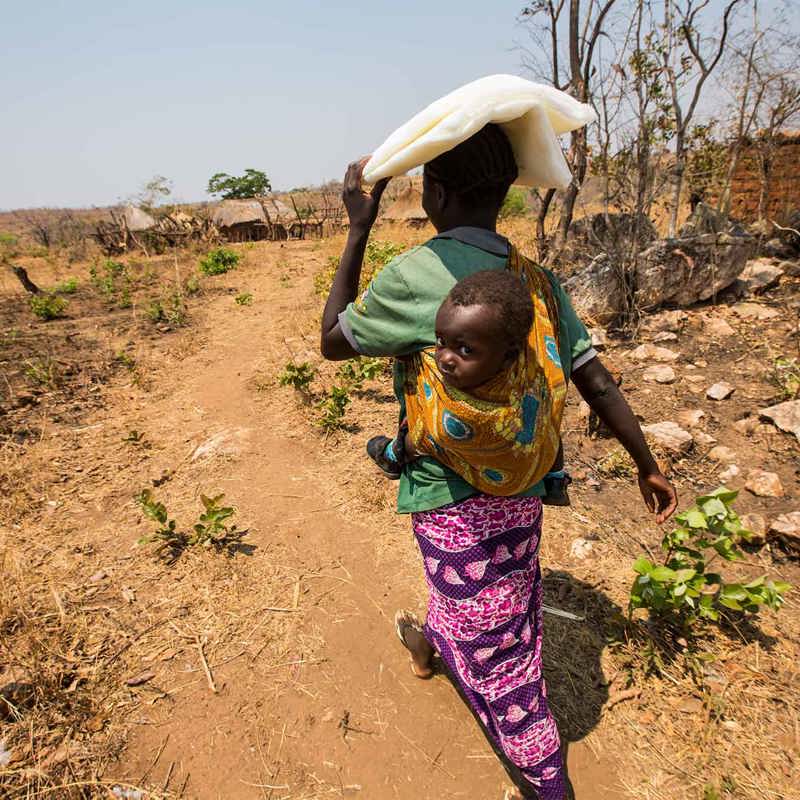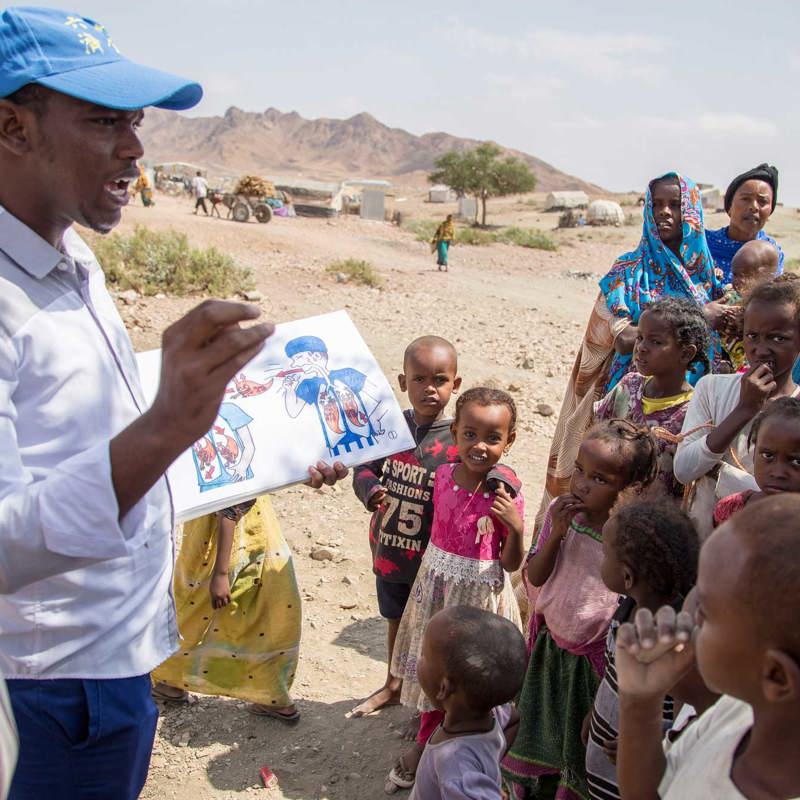-
 25 May 2023
25 May 2023One Mozambican Woman’s Fight Against Malaria – “the Devil” That Took Her Husband’s Life
By Peter Sands, Executive Director, The Global Fund
“Malaria is the devil that came to my house,” Celina Tembe says softly, her hand touching the head of her 3-year-old daughter, Manuela Manuel. In August last year, her 35-year-old husband, Manuel Maxaieie, came home late from work as a machine operat... -
 In February 2020, just before COVID-19 made such trips impossible, I visited a village in the Kongo Central province of the Democratic Republic of the Congo and talked to a community health worker, called François Mvueki. Looking at his daily logbook...
In February 2020, just before COVID-19 made such trips impossible, I visited a village in the Kongo Central province of the Democratic Republic of the Congo and talked to a community health worker, called François Mvueki. Looking at his daily logbook... -
 05 May 2023
05 May 2023Felled by a Warming World: Will Malaria Be the Next Pandemic?
By Peter Sands, Executive Director, The Global Fund
The next global health crisis might not be another pandemic caused by a novel respiratory infection. Instead, we could see climate change dramatically increasing the threat from an existing infectious disease–for example, malaria, a disease that kill... -
 24 March 2023
24 March 2023Fighting Tuberculosis Will Protect Us From the Next Global Health Threat
By Eliud Wandwalo, Head of Tuberculosis, the Global Fund
One of the best ways to prepare for future pandemics is to turbocharge the fight against tuberculosis and stop considering it the “pandemic of the poor”, writes Dr. Eliud Wandwalo, head of TB at the Global Fund to Fight AIDS, Tuberculosis and Malaria... -
 TB will likely kill more people in low- and middle- income countries in 2023 than COVID-19. Yet it attracts a tiny fraction of the political attention and financial resources we’ve deployed against the new virus.
TB will likely kill more people in low- and middle- income countries in 2023 than COVID-19. Yet it attracts a tiny fraction of the political attention and financial resources we’ve deployed against the new virus. -
 01 March 2023
01 March 2023In Côte d’Ivoire, Sex Workers Team Up With Police to Fight Stigma and HIV
By Deborah Guehi
I had been working as a sex worker for almost ten years when, in 2009, a client encouraged me to organize sex workers in our town and fight for our rights. “Together you have power,” he assured me. He made this suggestion after I told him how utterly... -
 09 December 2022
09 December 2022A Hotline Operator’s Tireless Efforts to Keep People on Drug Treatment Despite War in Ukraine
By Mikhailo Degtyarev, Operator at the Trust and Hope Hotline
A giant explosion that shattered a neighboring building’s windows announced the arrival of the war on February 24, 2022. The next days and weeks were surreal. -
 01 December 2022
01 December 2022The Best Way to Prepare for the Next Pandemic Is Not What You Think
By Peter Sands and Winnie Byanyima
The fight against HIV needs new impetus. As we feared when COVID-19 first emerged, the pandemic has had a devastating impact on progress against HIV and AIDS. But even before COVID-19, we were behind our targets for reducing new infections and deaths... -
 30 November 2022
30 November 2022We Have Tools to Prevent HIV – Let's Make Sure They Reach Those Who Need Them Most
By Susie McLean, Senior Advisor, HIV Prevention, the Global Fund
As we prepare for the next Global Fund funding cycle, we are working with programmers, researchers and advocates to adapt our HIV prevention investments to leverage new opportunities and to improve choices for people who need HIV prevention most. -
 30 November 2022
30 November 2022World AIDS Day: How are we supposed to protect our babies?
By Olena Stryzhak, Chair of the Ukrainian organization Positive Women
The importance of breastfeeding has been established as essential to a baby’s development for centuries; but what if you’re faced with the problem of needing to breastfeed your child while potentially passing on a disease? This is the reality for man...